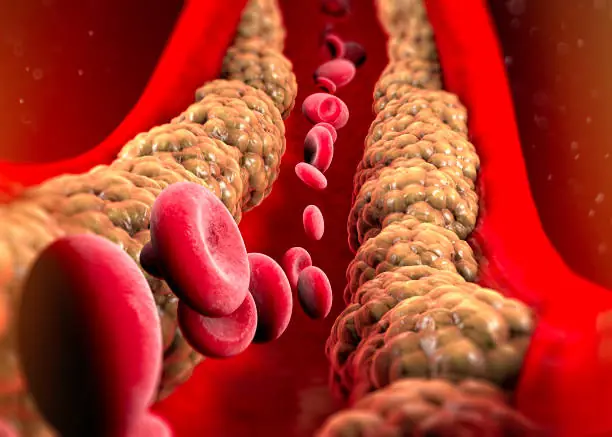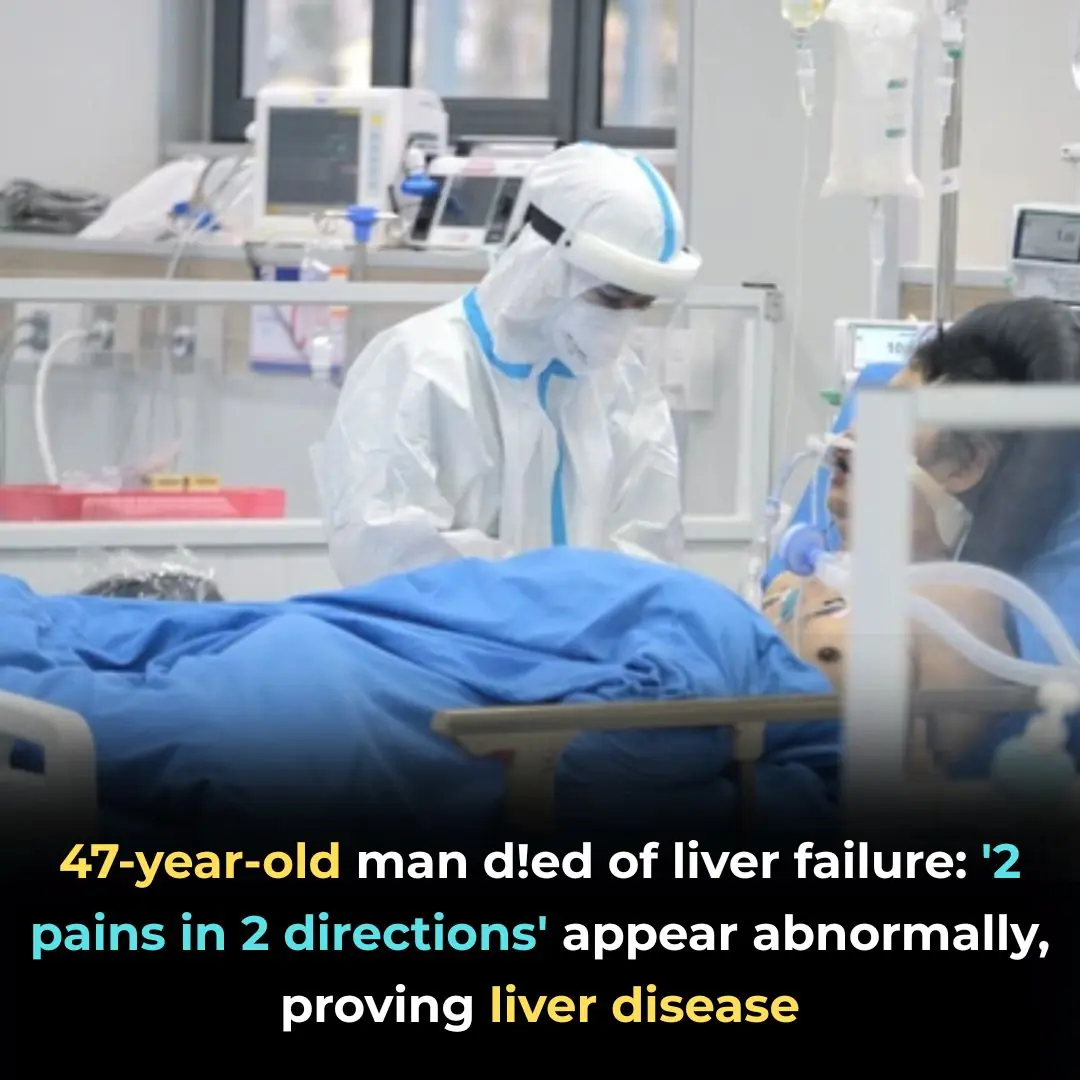
If Cancer Cells Are Developing in the Body, These 3 Nighttime Symptoms May Appear
The quality of your sleep can reveal a lot about your overall health—and in some cases, it may even help detect early signs of cancer.
When people think of nighttime symptoms that signal health problems, especially cancer, insomnia is usually the first that comes to mind. However, there are several other unusual nighttime signs that might indicate something more serious happening inside the body.
If you often experience the following three symptoms during the night, it’s best to consult a doctor as soon as possible.
1. Persistent Fever

When cancer begins to develop, the immune system gradually weakens—especially at night—leading to recurring fevers that don’t go away even after taking medication.
Experts explain that prolonged fever in cancer patients can occur for three main reasons:
-
Tissue breakdown: Rapid tumor growth causes areas of low oxygen and tissue death, triggering a fever.
-
Immune response: Some tumors release antigens that activate the immune system, leading to an abnormal rise in body temperature.
-
Nervous system disruption: In certain cases, cancer cells invade the brain’s temperature-regulating centers, resulting in chronic fever that doesn’t subside.
Clinical data shows that most cancer-related fevers appear in the late afternoon or at night. However, not all nighttime fevers are caused by cancer. Cancer symptoms typically occur in combination with other warning signs such as fatigue, weight loss, pain, or loss of appetite. Seeing a doctor early is the safest way to identify the cause and begin timely treatment.
2. Long-Term Insomnia
Insomnia can occur on its own or as a symptom of other health problems—including cancer. Numerous studies have shown a close relationship between cancer and sleep disturbances. Most cancer patients experience some degree of disrupted sleep.
Cancer-related insomnia often involves waking up repeatedly during the night or very early in the morning. Once awake, patients may find it extremely difficult to fall back asleep, even with medication.
This happens because cancer can cause pain, chest tightness, shortness of breath, coughing, and nerve compression at night—all of which disturb rest. Cancers involving the liver, kidneys, stomach, or brain are particularly known to trigger nighttime awakenings, typically between 3 and 4 a.m. During this period, these organs are most active in detoxifying the body. When tumors interfere with this process, the body reacts by waking up.
3. Persistent Body Aches—Especially Bone Pain
If you experience continuous pain that doesn’t improve with rest—and especially if it worsens at night—it could be a warning sign of cancer. Some people may also suffer from nighttime cramps or muscle spasms.
Among cancer-related pains, bone pain is the most common. About 70–80% of patients with advanced cancer develop bone metastases, leading to severe discomfort in areas like the spine, ribs, pelvis, thighs, and legs.
At first, the pain may come and go or appear only during movement. But as the disease progresses, it often becomes constant and intense—even during normal daily activities. These pains usually worsen at night and may not respond to regular painkillers.
Cancers most likely to spread to the bones include lung cancer, breast cancer, prostate cancer, and thyroid cancer.
Other Possible Nighttime Signs
Besides the three major symptoms above, cancer may also cause:
-
Excessive night sweating
-
Chest pain or tightness
-
Abdominal pain
-
Persistent coughing
-
Numbness or cramps in limbs
-
Frequent urination at night
-
Headaches or sharp localized pain where tumors are present
If these symptoms occur repeatedly, especially together, do not ignore them. Early medical evaluation is key to identifying the cause and increasing the chance of successful treatment.
News in the same category


The body will show 5 symptoms to remind you to eat less salt

5 foods that heal your body and STARVE cancer—eat these now!

Reverse diabetes and insulin resistance fast—4 hacks doctors don’t tell you!

This is Why You Always Wake Up in the MIDDLE of the Night (and how to make it STOP)

They were wrong about fasting — here’s what 30 hours without food really does to your body

Grow Date Trees From Seed (Start in a Pot → Plant Outdoors): The Complete, No-Stress Guide

The Incredible Benefits of Common Comfrey: Uses, Remedies, and Precautions

14 Reasons to Drink Lemon Water First Thing in the Morning

The #1 Food for Detoxifying and Supporting Kidney Health

Dark Chocolate and Tea Found to Significantly Lower Blood Pressure

Why This Doctor Refuses to Prescribe Statins for High Cholesterol

Top 5 Foods to Avoid if You Have High Blood Pressure

How bathing too often can affect your health

Did you know that if you get spots on your hands it means you have

This starves colon cancer cells — and strengthens your body’s natural defenses

7 COLLAGEN-boosting foods to ERASE joint pain & inflammation FAST!

The Human Brain Isn’t Built for Late Nights, Experts Warn

Harvard Doctor Reveals Foods You Should Avoid to Prevent Inflammation
News Post

A Natural Botox Alternative? How a Simple Chia Seed Mask Can Tighten, Brighten, and Rejuvenate the Skin

47-Year-Old Man Dies from Liver Failure: “Two Types of Pain, Two Types of Itching” Warn of Serious Liver Disease

Don’t Throw Away Your Empty Milk Powder Cans – Turn Them Into Useful Household Items

Can you spot the hidden dog? Only people with eagle eyesight can!

Can you spot the book, egg, cup, and pillow?

Neem: An Ancient Plant With Potential Health Benefits – What Science Says

Doctors reveal that green broccoli causes...see more

Artery-Cleaning Foods: The One Meal Doctors Won’t Tell You About

The body will show 5 symptoms to remind you to eat less salt

5 foods that heal your body and STARVE cancer—eat these now!

Reverse diabetes and insulin resistance fast—4 hacks doctors don’t tell you!

This is Why You Always Wake Up in the MIDDLE of the Night (and how to make it STOP)

They were wrong about fasting — here’s what 30 hours without food really does to your body

You're doing it all wrong. Here’s the right way to store avocados

8 reasons why adding baking soda to your toilet tank is a must-do trick

You're doing it all wrong. Here’s the right way to store potatoes

Washing machine stays clean all year without scrubbing thanks to a common household liquid, saving millions every year 👇👇

Aster flowers, the 'miracle cure' hidden in roadside wild plants
